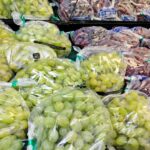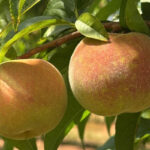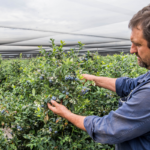NZ and Aussie groups laud TPP

Several Australasian food industry groups have praised the landmark Trans-Pacific Partnership (TPP) agreement, which is expected to help widen opportunities for New Zealand and Australian produce exports. 
Horticulture New Zealand said the most "critical result" of the TPP was the reduction of tariffs to Japan, which would have a significant impact on earnings for growers of kiwifruit, buttercup squash, peppers, onions and "virtually all other horticulture exports" to the East Asian country.
Japan is the New Zealand horticulture industry's third-largest market and the elimination of tariffs will benefit growers by an estimated NZ$28 million (US$18.3 million) per year.
"We want to congratulate the government, particularly [Trade] Minister [Tim] Groser, for their determination and patience in seeing this deal through," Horticulture New Zealand president Julian Raine said in a release.
"We will now be keen to see what impact the settling of the TPP agreement will have on other markets in the region, not included in the original 12 signatories.
"We look forward to capitalising on this very significant trade agreement."
New Zealand kiwifruit marketer Zespri highlighted the industry paid NZ$15 million in tariffs in Japan, the industry's largest export market, during 2014.
"If this tariff relief was passed straight through to New Zealand growers, it would equate to savings of over $1000 for every hectare of kiwifruit grown in New Zealand. This tariff elimination will also benefit Japanese consumers by supporting our competitiveness against other fruit in Japan," Zespri CEO Lain Jager said in a release.
"We welcome the release of further details of the Agreement and hope this will help to balance some of the concerns which have surrounded these negotiations. The reality is that New Zealand is a small nation reliant on exporting to earn our way in the world and these agreements are vital to our future prosperity as a nation.
"This Agreement follows recent successes by the government of New Zealand in achieving tariff elimination through agreements with Korea and Taiwan, and we are grateful for the support of our government in encouraging trade."
New Zealand Kiwifruit Growers Inc (NZKGI) also highlighted the benefits from the phasing out of tariffs for the industry's seventh-largest market South Korea through a separate free trade agreement, emphasizing the combined agreements would have a significant impact on grower earnings.
Australian Food and Grocery Council (AFGC) CEO Gary Dawson said the TPP would bring benefits to his country's food and grocery sector.
"This regional trade agreement will further open up some of Australia’s key export markets, particularly in the food, beverage and grocery sectors. The TPP builds on earlier trade agreements including with the United States, Japan, Malaysia and Singapore," he said.
"The TPP sets a global standard for trade liberalisation going forward. The TPP provides a common set of rules among 12 countries which will greatly support Australian food exporters' participation in regional and global supply chains."
The Australian Made Campaign has urged businesses to boost country-of-origin branding on their products and produce as an important strategy to leverage off the TPP's benefits.
"The TPP will significantly reduce trade barriers, opening up new markets for Aussie growers and manufacturers, but it is important that they make the most of the marketing opportunity presented by 'being Aussie'," Australian Made Campaign chief executive Ian Harrison said in a release.
"Prominent country-of-origin branding will play a key role in driving sales in the Pacific region, which has demonstrated increasing demand for Australian products and produce.
"The stylised kangaroo has been used to promote genuine Aussie products and produce for almost three decades, and the research shows it works."












































